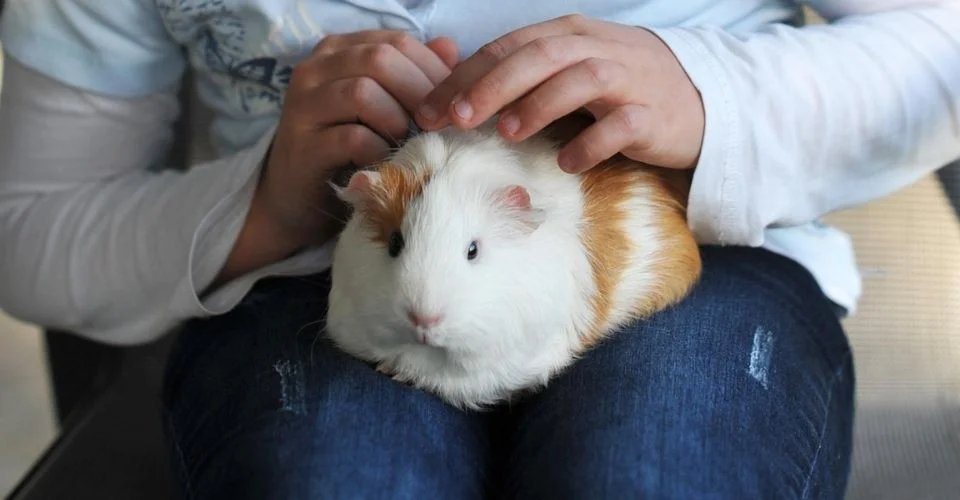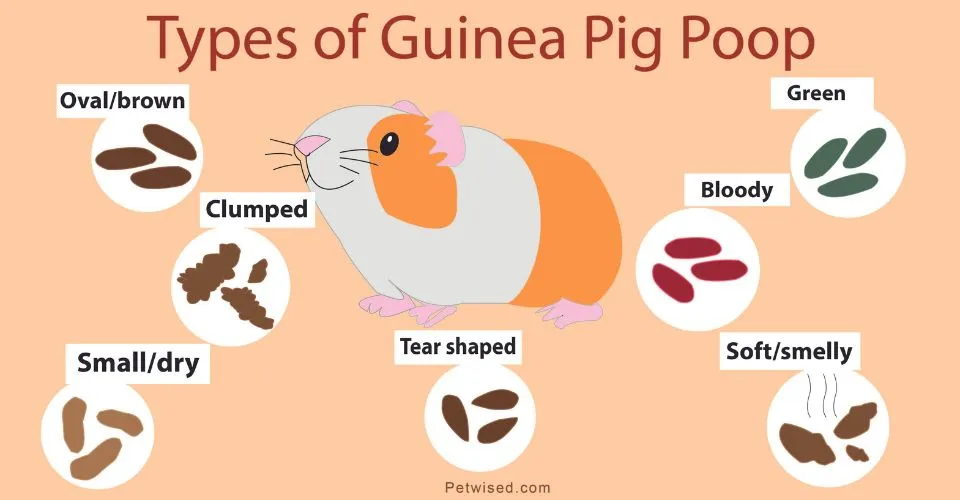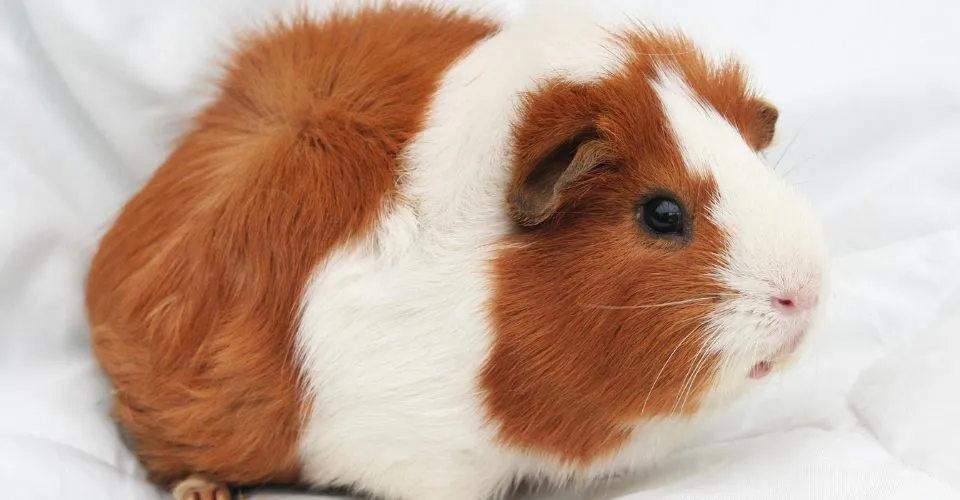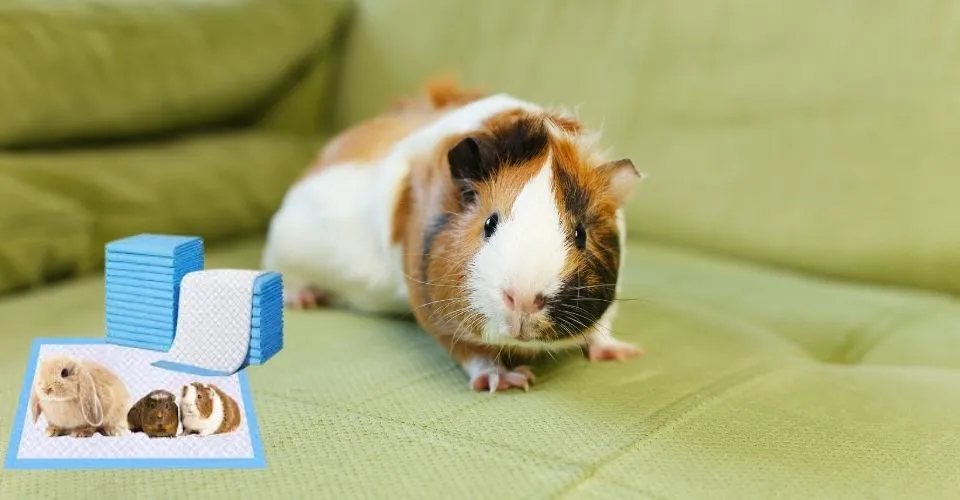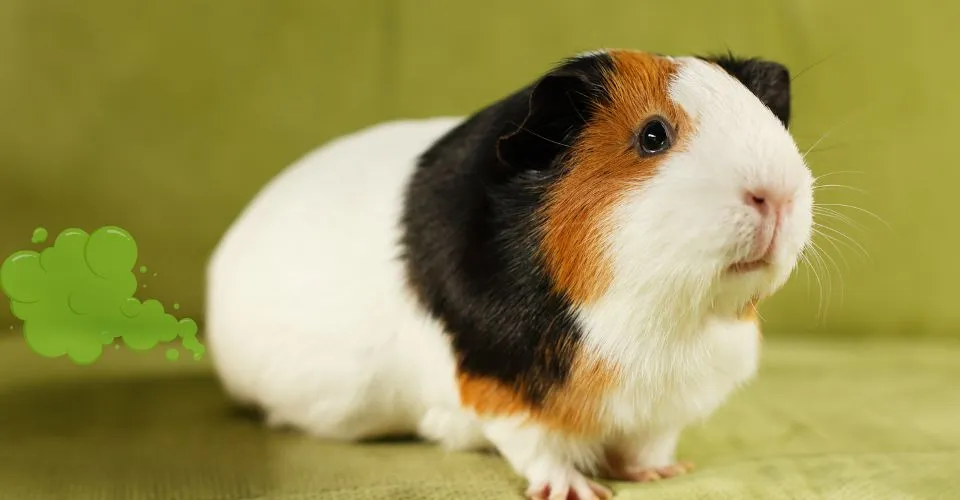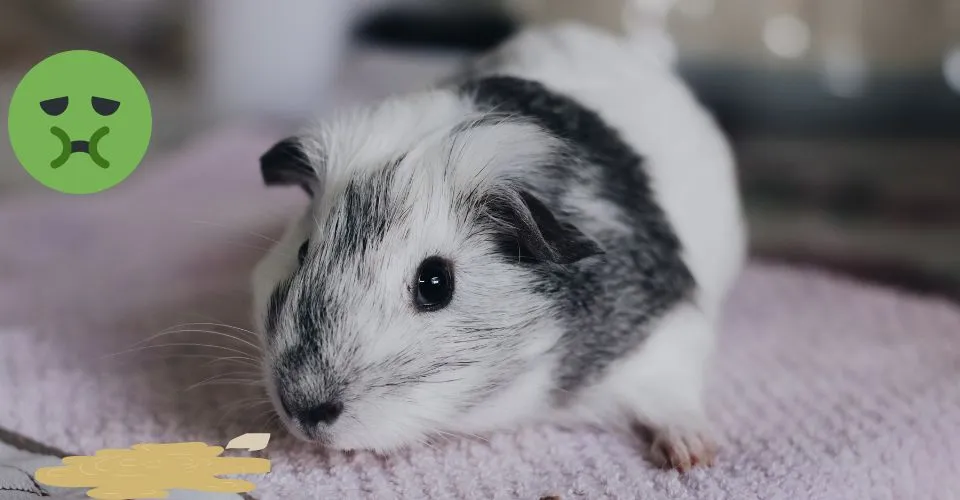Also known as cavies, guinea pigs are small mammals belonging to the family Caviiade. Like most mammals, guinea pigs are dimorphic; their females give birth to baby guinea pigs. These piglets suckle on the two nipples of their mothers. Based on this, many novice guinea pig owners assume that their female guinea pigs would also be experiencing a menstruation cycle and making a mess as they bleed out menses. Many adopt only male guinea pigs because they think they cannot handle the guinea pig periods (which they don’t have). They wonder, “do guinea pigs have periods?”
Well, guinea pigs don’t have periods (menstrual cycle). However, they do go into heat, estrous cycle, which is completely different from the menstruation cycle and involves no bleeding or any kind of uterine discharge.
Guinea pigs are built in many ways like humans. Female guinea pigs seem to have a uterus, just like female humans and dogs, but does that mean they can have periods like female humans, dogs, and other primates with a uterus. Bleeding during the heat is not normal for guinea pigs. Instead of experiencing the menstrual cycle, they experience an estrous cycle, which involves no bleeding.
So, if your guinea pig is bleeding from the uterus and you think it might be her bleeding out the menses (blood and other discharge resulting from the shedding of the endometrial lining of the uterus during menstruation), continue reading. We are going to discuss all about the guinea pig estrous cycle and resolve your concerns and doubts, like do female guinea pigs have periods? And if your piglet is not bleeding because of heat, where is the blood from? Let’s start off by getting an overview of the guinea pig reproduction.
Guinea Pig Reproduction

Guinea pigs are prolific breeds. Female guinea pigs reach sexual maturity at around 4 to 6 weeks of age, while males mature at approximately 8 to 9 weeks of age. So, your baby female guinea pig might be experiencing her first estrous cycle at the young age of 4 to 6 weeks. The guinea pigs heat cycle lasts for around 16 days. During this period, they only become receptive to mating for only around 8 hours. The guinea pig gestation period is about two months (57 to 72 days) with an average of 63 days.
So, if your baby piglet got pregnant during her first heat cycle, she could be giving birth to a litter of guinea pigs at the young age of 4 to 5 months. While a sow might give birth from one to eight or even more piglets, the average litter size is 2 to 4 (17 has been recorded as the highest).
As soon as 15 hours after birthing a litter of guinea pigs, sows can go back into heat (postpartum estrus). This means that nursing guinea pigs can get pregnant and have another litter of pups after two months of gestation. Guinea pigs can have up to 5 litters in a year. If you add up the numbers, you can end up with a load of guinea pigs every year, which could be cute but overwhelming and daunting. Therefore, you will have to separate guinea pig babies from the mother as soon as they are weaned at around 2 to 3 weeks of age. Otherwise, they may end up impregnating each other.
Do Guinea Pigs Have Periods?
Guinea pigs don’t have messy periods involving messy discharge and uterine bleeding. However, they do go into heat, known as the estrous cycle. Guinea pig’s estrous cycle lasts about 16 days. During this period, they become receptive to breeding for only about 6 to 11 hours, mainly during the nighttime. If female guinea pigs manage to mate and get pregnant during this short receptive period, they will stop going into heat as long as she is pregnant. Female guinea pigs keep going into heat every two to three weeks until they are spayed or become pregnant. Soon after giving birth, female guinea pigs can go into heat and get pregnant again.
Signs Guinea Pig Is In Heat: How Can You Tell If a Guinea Pig Is In Heat?
While most of the time, guinea pig owners don’t even notice that their girl guinea pigs are in heat, sometimes they will be hormonal and dramatic that you will know that your piglet is in heat. Here are some of the most common signs of guinea pig in the heat:
- Increased activity
- Swollen vulva
- Chasing cage mates
- Grumpiness or temperamental behavior
- Trying to mount companions as if she was male
- Sniffing bottoms and rumbling
- Low-pitched vocalizations
- Swaying and putting her rump in the air
- Muscles and joints become tender and relaxed
| Did You Know? The vigor of heat in guinea pigs depends on the guinea pig diet. A poorly fed guinea pig would have a very weak heat compared to a healthy and properly fed piglet. |
Is It Normal For Guinea Pigs To Bleed During Heat?
No! Guinea pigs do not normally bleed when in heat. So, if your female guinea pig is bleeding, there is probably something wrong with her, and you need to take her to a veterinarian. Underlying reasons for uterus bleeding in guinea pigs could be kidney or bladder stones, urinary tract infection, tumors, etc.
Bladder Stones in Guinea Pigs
Bladder stones are prevalent in guinea pigs and are also known as uroliths. A diet high in calcium is primarily responsible for causing stones in guinea pigs. Very minute crystals may pass through the urethra with guinea pig urine. Still, they may get stuck, blocking the urethra, or wounding it and leading to blood in guinea pig urine.
If the stones are too big to pass through the urethra, surgery would be the only option to remove the stones.
Urinary Tract Infection in Guinea Pigs
Urinary tract infection (UTI) or bladder inflammation (cystitis) may cause blood in guinea pig urine. Many guinea pig owners assume that blood is coming from the guinea pig’s uterus, but it is perhaps coming from the urine. You can take a urine sample to an exotic vet who will run a urine test and confirm if your piglet is suffering from UTI. If your guinea pig has peed on a hardwood floor, you can drop a wee bit of hydrogen peroxide on the pee to check if it bubbles or not—bubbling would indicate there is urine in the blood.
Tumors in Guinea Pigs
Though it is not very common, bleeding could have been caused by a tumor growing on guinea pigs’ urinary or reproductive tract. Depending on its location, the tumor could be very irritating and life-threatening for the guinea pigs. After diagnosis, the vet may recommend surgery. If the tumor is benign and is not expected to grow, the vet may suggest leaving it alone, as long as it is not affecting guinea pig health.
Pyometra in Guinea Pigs
Pyometra is a bacterial infection that leads to the uterus’s inflammation and accumulation of pus in the uterine lumen. It is very common among female guinea pigs that have not been spayed and mostly occurs when piglets are in season. If left untreated, it could be very fatal for the guinea pigs. Immediately after diagnosis, the vet would put your piglet on antibiotics and fluid therapy if needed. While medical management can help, ovariohysterectomy is the most preferred treatment.
Spaying and Neutering Guinea Pigs

If you don’t want to breed your guinea pigs, you can go ahead and get them spayed or neutered. But know that spaying and a neutering guinea pig is a costly procedure. Even when done by an experienced exotic veterinarian, it carries risks. Neutering male guinea pigs is generally easier and safer than spaying female guinea pigs.
Before taking your piglets for spaying or neutering, know that they don’t react well to anesthesia and surgery. To avoid the vet bills and risks involved, you can get piglets of the same-sex or house male and female guinea pigs separately. If you have a male and female guinea pig pair and want to keep them in the same cage as they love company, you could only get your boar neutered, which is easier and safer, and let your female stay intact.
If you go ahead with the spaying or neutering surgery, you will have to take extra care of your guinea pig:
- House it in a quiet place, separate from other piglets.
- Keep the cage clean and tidy and provide clean towels.
- Ensure the guinea pig is drinking ample water and taking in extra vitamin C supplements.
Final Verdict: Do Guinea Pigs Have Periods?
No, guinea pigs don’t have periods. Instead, they have an estrous cycle, which means they go into heat without experiencing a vaginal discharge or bleeding. Guinea pigs go into heat every two to three weeks. It lasts for around 16 days, and during this period, they are only receptive to breeding for about 6 to 11 hours, mostly during the night hours.
